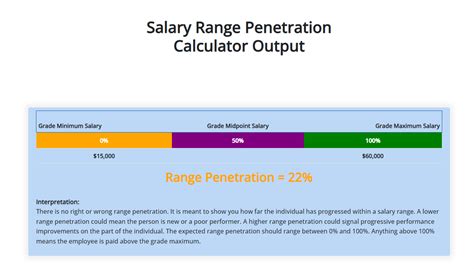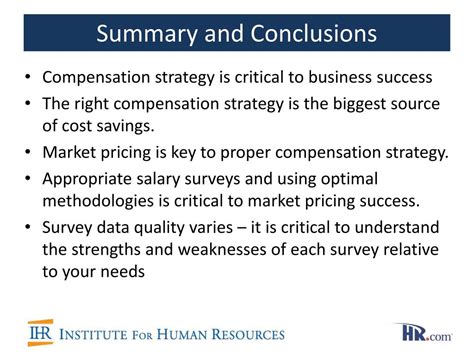Navigating job descriptions can feel like learning a new language, and one of the most common—and often confusing—phrases you'll encounter is "Salary: DOE." While it might seem like a way for a company to be secretive, understanding what "DOE" truly means is the first step toward negotiating a salary that reflects your true market value. This simple acronym is your cue to prepare, research, and advocate for the compensation you deserve.
This guide will demystify "Salary: DOE," transforming it from a point of uncertainty into a powerful opportunity for your career.
What Does "Salary: DOE" Mean in a Job Posting?


"DOE" is an acronym for "Depends on Experience." When an employer lists a salary as DOE, it signals that they have a flexible salary range for the position rather than a single, fixed number. The final offer will be determined by a candidate's specific qualifications, including their years of relevant experience, educational background, proven skills, and other factors.
Employers use DOE for several key reasons:
- To Attract a Wide Range of Candidates: A fixed salary might deter highly experienced professionals who command a higher pay rate, or discourage promising entry-level candidates who fear they are underqualified. DOE keeps the door open for everyone.
- To Maintain Flexibility: The company may be open to shaping the role around the right person. A candidate with 10 years of experience might be brought in at a senior level with more responsibility and higher pay, while a candidate with 3 years of experience might be hired into a standard version of the role.
- To Align with Internal Pay Structures: The final salary needs to fit within the company's existing compensation bands for similar roles, and a candidate's profile determines where they land within that band.
Determining Your Potential Salary in a DOE Scenario


Since "DOE" doesn't provide a number, the responsibility falls on you, the job seeker, to determine the appropriate salary range for the role. This requires research. Let's use the role of a Marketing Manager as a concrete example to see how this works.
While a job posting might say "Marketing Manager, Salary: DOE," market data gives us a clear picture of the potential compensation.
- Median National Salary: The U.S. Bureau of Labor Statistics (BLS) reports that the median annual wage for Advertising, Promotions, and Marketing Managers was $156,580 in May 2023.
- Typical Salary Range: Salary aggregators show the spread. For a Marketing Manager in the U.S., Payscale reports a range from approximately $54,000 (for early-career professionals) to $126,000 (for experienced individuals) as of mid-2024. Salary.com presents a similar median of around $116,302, with the full range often spanning from $99,000 to $138,000.
When you see "DOE," you should immediately begin researching the market rate for that specific job title, keeping in mind that your personal qualifications will place you somewhere within that established range.
Key Factors That Influence a DOE Salary


This is the core of what "Depends on Experience" really means. An employer will evaluate you across several dimensions to formulate an offer. Understanding these factors will empower you to build your case during salary negotiations.
### Level of Education
Your educational background provides a foundation of knowledge that employers value. A higher or more specialized degree can directly translate to a higher starting salary within the DOE range. For example, a candidate with a Master of Business Administration (MBA) with a concentration in marketing may command a salary 10-20% higher than a candidate with only a bachelor's degree, especially for strategic roles. The degree signals a deeper understanding of business principles, analytics, and leadership, justifying a placement at the higher end of the pay scale.
### Years of Experience
This is the most direct interpretation of DOE. Experience is not just about the number of years you've worked but the quality and relevance of that experience.
- Entry-Level (0-2 years): You can expect an offer at the lower end of the market range. Your focus should be on your potential, academic achievements, and any relevant internship experience.
- Mid-Career (3-8 years): You have a proven track record of results. You can command a salary in the median range. Be prepared to discuss specific projects you've led and metrics you've improved.
- Senior/Expert (8+ years): With extensive, relevant experience, you are a strategic asset. You can confidently aim for the top end of the salary range. Your negotiations should focus on your leadership, strategic impact, and unique expertise.
### Geographic Location
Where you work has a massive impact on your salary due to variations in cost of living and local market demand. A job in a major metropolitan hub will almost always pay more than the same job in a smaller city or rural area.
For example, according to 2024 data from Salary.com, a Marketing Manager role in San Francisco, CA might have a median salary well over the national average, often exceeding $140,000. The same role in Kansas City, MO, might have a median closer to $110,000. When you see DOE, use a salary calculator to adjust your expectations based on the job's location.
### Company Type and Size
The type of company you're applying to significantly influences its compensation structure.
- Startups: Often cash-strapped, they may offer a salary at the lower end of the market range but compensate with significant equity (stock options).
- Small-to-Medium Businesses (SMBs): Salaries are typically close to the local market average.
- Large Corporations & Big Tech: These companies usually have structured compensation bands and often pay at the top of the market to attract the best talent. A company like Google or Microsoft will likely offer a much higher base salary for a similar role than a local or regional company. Glassdoor data frequently shows that base salaries at large tech firms can be 20-40% higher than the industry average.
### Area of Specialization
Within any given profession, certain specializations are more in-demand and command higher pay. For a Marketing Manager, a specialization in Digital Marketing Analytics or Marketing Automation (e.g., Salesforce, HubSpot) is highly valued and can push a salary offer higher. A candidate with a generic marketing background may receive an offer closer to the median, while one with a proven, in-demand technical skill set can negotiate for a salary at the upper end of the DOE range.
Job Outlook: Navigating DOE in a Changing World


The practice of using "DOE" is evolving. A growing number of states and cities (including California, Colorado, Washington, and New York City) have implemented pay transparency laws that require employers to list salary ranges in job postings. The U.S. Bureau of Labor Statistics (BLS) projects steady growth for most professional roles, and as the job market remains competitive for skilled talent, this trend toward transparency is expected to continue.
However, even when a range is provided, the principles of DOE still apply. The listed range can be wide, and your ability to demonstrate your value based on the factors above will determine whether you are offered a salary at the bottom, middle, or top of that range. Therefore, learning to articulate your worth is a timeless and essential career skill, regardless of job posting format.
Conclusion: Your Strategy for "Salary: DOE"


Seeing "Salary: DOE" on a job description should not be a cause for concern. Instead, view it as an invitation to engage in a meaningful conversation about your value.
Here are your key takeaways:
1. DOE Means "Depends on Experience": The employer has a flexible salary range and will tailor the offer to the candidate's specific qualifications.
2. Do Your Homework: Immediately research the market rate for the role in that specific geographic location using sources like the BLS, Salary.com, Glassdoor, and Payscale.
3. Assess Your Value: Honestly evaluate your experience, education, skills, and specializations to determine where you fit within the market range.
4. Prepare to Negotiate: Build a strong case for why you deserve your target salary by connecting your past achievements and qualifications to the needs of the role.
By understanding the factors that shape a DOE salary, you transform from a passive applicant into an empowered professional, ready to secure the compensation you've earned.
